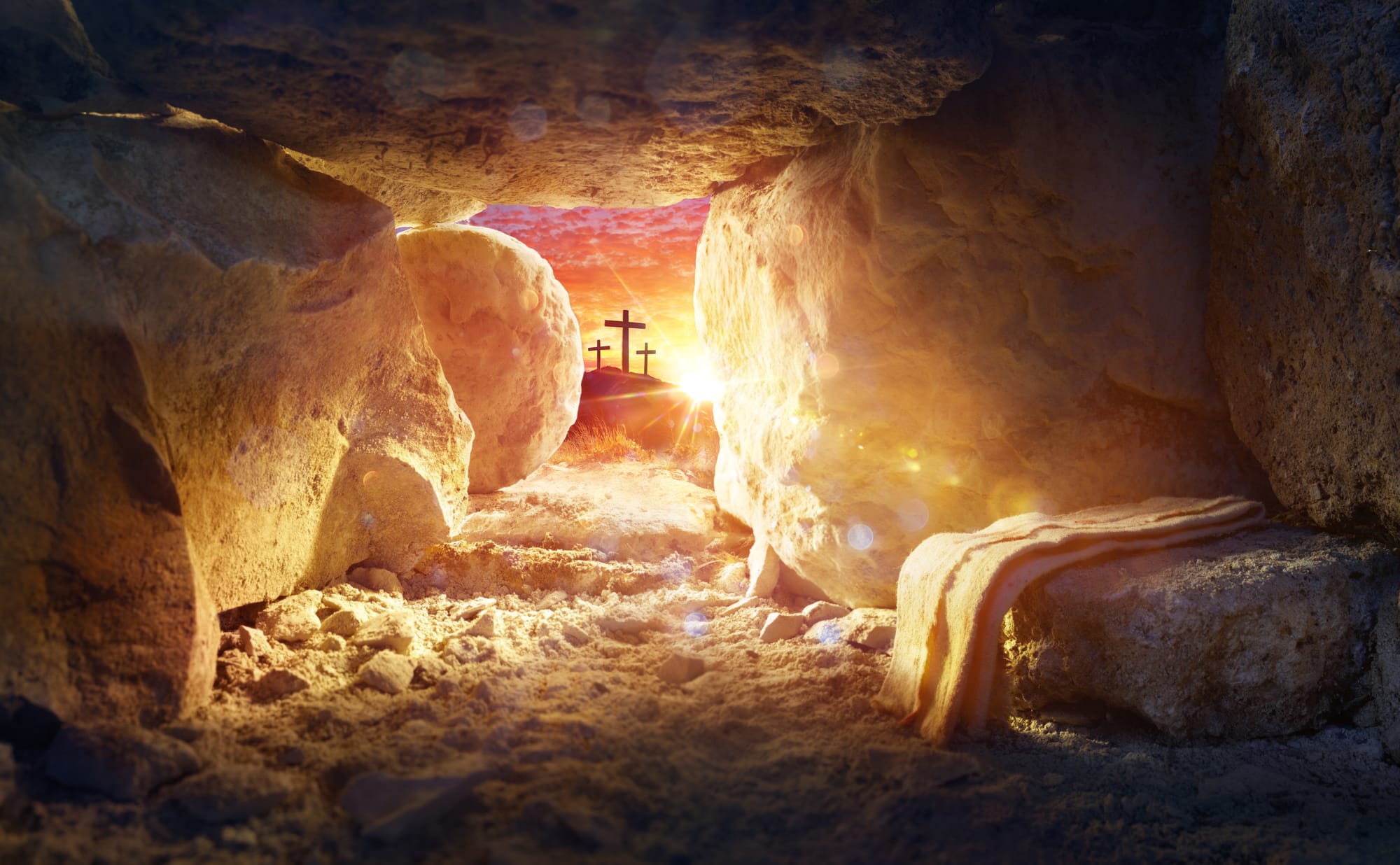
"In the movie, Luke’s crisis proved to be the painful birth to his new life, his true life. Our own crises may also serve as the same birth pangs," writes Dr Tan Soo Inn. "We know that what began as unspeakable horror and pain turned out, in the end, to be the first chapter of a story that ends with life." Photo by James Pond.
As I re-watched Star Wars Episodes 4 and 5, I was reminded that the most compelling part of a movie is a good story well told.
I was also reminded of CS Lewis’s assertion that all good stories in some way, reflect and point back to the story, God’s story in His dealings with humankind.
What struck me this time round as I watched the movies was what Jesus taught in John 12:24,25:
“Very truly, I tell you, unless a grain of wheat falls into the earth and dies, it remains just a single grain; but if it dies, it bears much fruit. Those who love their life lose it, and those who hate their life in this world will keep it for eternal life.” (John 12:24-25, NRSV)
All good stories in some way, reflect and point back to the story, God’s story in His dealings with humankind.
This came out most clearly in Obi-Wan’s decision to “die” at the hands of Darth Vader. It was a deliberate choice because he knew that after his “death” he would become “more powerful” than Vader could possibly imagine. Still it was a deliberate choice to “lose” and to “die”.
As we enter the season of Lent, we see in this an echo of Jesus’s choosing of the Cross. Yet, it was through His death that He brought forth life for us all.
But I was also thinking of the deaths of Luke Skywalker’s uncle and aunt. The horror of their murders by the Stormtroopers meant that there was no way that Luke could go back to his old life. And paradoxically that freed him to go forward, to pursue his destiny.
Tragedy and loss
Perhaps there are two types of cross experiences. There are some deliberately chosen, as Obi-Wan chose to “die” at the hands of Vader. Then there are the crosses that come to us disguised. Like the death of Luke’s uncle and aunt.
When we encounter such horrors in our life, we have no idea of their life-giving potential.
Luke’s crisis was the painful birth to his new, true life. Our own crises may also serve the same purpose.
All we know is that we go through these experiences of incredible pain and devastation. We see no rhyme nor reason in them. We didn’t ask for them.
In the movie, Luke’s crisis proved to be the painful birth to his new life, his true life. Our own crises may also serve as the same birth pangs.
There are examples aplenty in the Scriptures. Think of Joseph sold into slavery – by his brothers, no less. Or Daniel, seeing his homeland decimated, before he was taken away in slavery to serve a pagan ruler.
But we know how their stories turn out. We know that what began as unspeakable horror and pain turned out, in the end, to be the first chapter of a story that ends with life, life for them and through them, life for others.
The grace to embrace
Lent seems like a good time to remember this spiritual principle.
Death is tragedy. All tragedies are finally samples of the tragedy of being human. All tragedies remind us that tragedy is a universal.
But if we believe that God is the author and finisher of our lives (Hebrews 12:2), if we believe that God uses every strand of our life as he weaves together the meaning of our lives (Romans 8:28), then we can face the tragedies of our lives with courage and faith.
However this requires that we embrace tragedies as potential life-giving crosses. This will be hard to do at first when we are paralysed by pain, shock and anger. Which is why patience is such a fundamental Christian virtue.
Catastrophe and joy
JRR Tolkien coined the term “eucatastrophe” to describe the reality of how our most horrific experiences can unexpectedly turn out for good. As Chris Armstrong puts it:
“Deep in the stream of Western literature runs a current JRR Tolkien called ‘eucatastrophe’ literally, ‘good catastrophe’. Tolkien served as a lieutenant in WWI and saw action in the offensive of the Somme before succumbing to trench fever. In a famous essay written many years after the armistice, he described how our favourite stories often bring us to the ‘sudden joyous turn’ that in the face of horrific events ‘denies’ universal final defeat’, giving ‘a fleeting glimpse of Joy, Joy beyond the walls of the world, poignant as grief’.
All that is good in me can be traced to some of the most painful experiences of my life.
“Far from functioning as illegitimate escapes from reality, Tolkien argued, these tales of joy snatched from the jaws of tragedy point towards the central True Story of Christ’s passion and resurrection ‘the greatest and most complete conceivable eucatastrophe’. All stories that hold out hope in the cataclysmic struggle between Good and Evil from the first fairy tale to the Lord of the Rings to Star Wars and beyond echo this greatest eucatastrophe.”
I believe this to be true but I can’t help thinking that a “eucatastrophe” is first a “catastrophe” before it is seen to be “eu” (ie good). Good Friday precedes Easter.
I know that all that is good in me can be traced to some of the most painful experiences of my life. (Though I wouldn’t want to wish that kind of pain on anyone.) At this stage of my life, I am clearer about the pedagogical value of pain.
And for those of us in the midst of pain, loss and confusion, I pray that you will find the courage to press on. There will be a happy ending. You’ll see.
Because God is the Author of your life. And He writes with a sure hand.
This article was first published by Graceworks and is republished with permission. You can find more articles here.
RELATED STORIES:
Lament! President of NCCS exhorts leaders at Pastors Summit 2021
Reflection and Discussion
- What cross are you currently bearing in this season? Can you see the similarities with Jesus’ Cross?
- If you were to look at your cross as an outsider, what elements of hope and joy could you find in your situation?
- “God is the Author and finisher of our faith.” How does this verse bring you encouragement?
We are an independent, non-profit organisation that relies on the generosity of our readers, such as yourself, to continue serving the kingdom. Every dollar donated goes directly back into our editorial coverage.
Would you consider partnering with us in our kingdom work by supporting us financially, either as a one-off donation, or a recurring pledge?
Support Salt&Light



